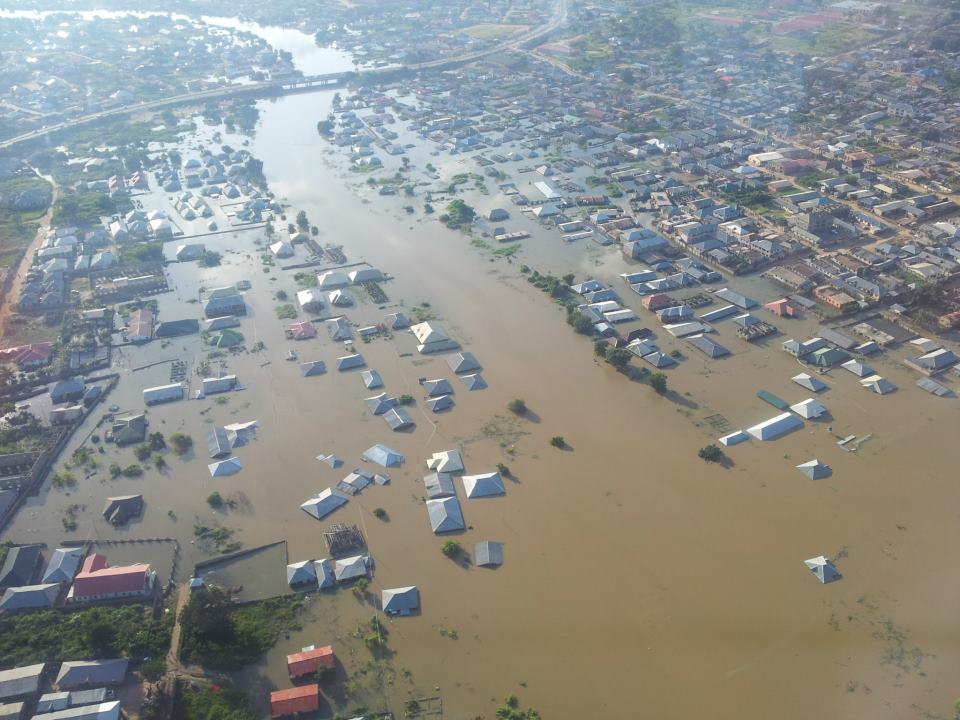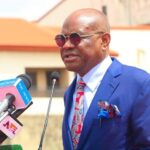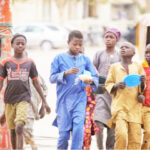The humanitarian crisis currently being experienced by flood victims in many parts of the country is a source of serious concern to Nigerians, but that does not appear so to the Nigerian government; at least, to the extent to which its poor reaction can reveal.
The failure of the entire hierarchy of the country’s leadership to visit any of the worst-hit states lends credence to the public insinuation that government does not see the recent catastrophic flooding, in spite of its large-scale devastations, as a national emergency.
Food Prices Soar As Floods Disrupt Supply Chains
Administrative lapses in public healthcare: The Niger State experience
It is scandalous that while high-level government officials in the executive and legislature are still contemplating a visit to any IDP camp of flood victims, they find it more expedient to attend political rallies organised to kick-start electioneering campaigns for the forthcoming 2023 general elections. If anything, government indifference to victims’ critical predicaments illustrates the lowly value placed on human life in Nigeria.
With death toll hitting over 600, about 2.5 million persons have so far been affected by the ravaging flooding. Speaking while giving updates on the flood situation at a recent press briefing in Abuja, the Minister of Humanitarian Affairs, Disaster Management and Social Development, Hajiya Sadiya Umar Farouk, disclosed that 1.3 million people had been displaced with a total of 121,318 houses partially damaged and 82,053 others totally damaged. She further disclosed that while 108,392 hectares of farmlands were partially destroyed, another 332,327 hectares were totally destroyed; a red flag for food insecurity in the country.
The story being told by victims in many of the 27 out of the 36 states and the Federal Capital Territory (FCT) affected by the 2022 flood is that of a people abandoned to their fate. For example, over 2000 people displaced by flood in the Nsugbe community of Anambra State now live in bushes; exposing them to wild life attacks. The victims made shelters for themselves using nylon bags, broken glasses, and wood picked from bushes.
Flood victims in more than 10 affected villages in Zaki Local Government Area (LGA) of Bauchi State recently returned to their communities; counting their losses in tales of woes. Crying out for help after losing their homes, livestock and farmlands to flooding; they pleaded with government to intervene in their life-threatening situation as they lack shelter, food and clothing. It is woeful that no government or philanthropic presence has been noticed in these communities.
The devasted Bauchi villages include Dudduru, Gasamako, Sekuwa, Tagoyo, Gara, Tabasu, Kore, Ariya, Adabda, Mainako, and Jama’ren Fulani. Reacting to the cry by the victims, Bala Yakubu Lame, who heads the State Emergency Management Agency, said efforts were being made to seek assistance from other LGAs, charitable persons and organisations. This is even as Governor Nyesom Wike of Rivers State approved the sum of N1 billion to support flood victims, especially in Ahoada West and Ogba/Egbema/Ndoni LGAs of the state.
For others still living in Internally Displaced Persons (IDP) camps, the tale is that of overcrowded halls, poor environmental sanitation, disease outbreaks, especially water borne infections, lack of medical supplies, hunger and starvation. Although the Kogi State government recently denied the outbreak of disease in any of its IDP camps, the state commissioner for health, Usman Zakari, only clarified how 10 mobile teams have been visiting the IDP camps; pledging that government “shall provide necessary health facilities such as Anti-Malaria Prophylaxis and Insecticide Treated Nets”.
Flood victims, as a vulnerable group in IDP camps, deserve concrete interventions from the Kogi State government; not promises that may or may never be fulfilled. More worrying is the fact that among the victims are children, pregnant women, the physically-challenged and persons above 60 years of age. The appeal by Zakari for assistance from the federal government, international donour agencies, and individuals calls for a critical interrogation of the funds that accrue to states from the Ecological Fund.
Granted that President Muhammadu Buhari recently approved the release of 12,000 metric tons of grains for victims of flood across the country, whether the grains have been distributed and if they reached the intended targets is the question on the lips of Nigerians including the victims who are crying of hunger in IDP camps. Besides, the management of national emergencies should go beyond release of grains. Healthcare, shelter, and the education of the school-age children in affected communities also matter.
Government should ensure that the $1million immediate humanitarian assistance announced by the United States of America through the U.S. Agency for International Development (USAID) is strictly utilised for people affected by the record flooding in Nigeria. According to USAID, the intervention shall cover relief commodities, multipurpose cash assistance and hygiene kits amid the ongoing cholera outbreak in some communities impacted by floods. Many things are still wrong with the management of emergencies in Nigeria. The unchanging poor response of the country to disaster management is shameful. It’s an embarrassment that relevant agencies have, over the years, failed to develop and improve upon an efficient culture of preparedness. Worst still is how agencies with a mandate to manage disasters have, as reported by the Nigeria Extractive Industries Transparency Initiative (NEITI), been deeply absorbed in corrupt practices. It would be irresponsible for any state or local government, which like the federal government, statutorily draws Ecological Fund in varying fractions from the Federation Account.
We condemn the utilisation of the Ecological Fund for purposes other than environmental emergencies it was meant. The institutional culture by which states’ disaster management outfits await local and foreign aid each time there’s a national emergency even where such has rather become a recurring decimal is not acceptable. This response by states to ecological disasters shall only worsen if Ecological Fund remains without probe and prosecution of corrupt officials.
While it’s not late to rescue flood victims from their traumatic conditions, Nigerians expect a more robust response to flood victims; reasonably caring for their health, shelter and clothing. An official visit by Mr President to areas worst-hit by the flooding would go far to psychologically give victims a sense of belonging. We also call on well-meaning Nigerians who have the means to support these victims.

 Join Daily Trust WhatsApp Community For Quick Access To News and Happenings Around You.
Join Daily Trust WhatsApp Community For Quick Access To News and Happenings Around You.


